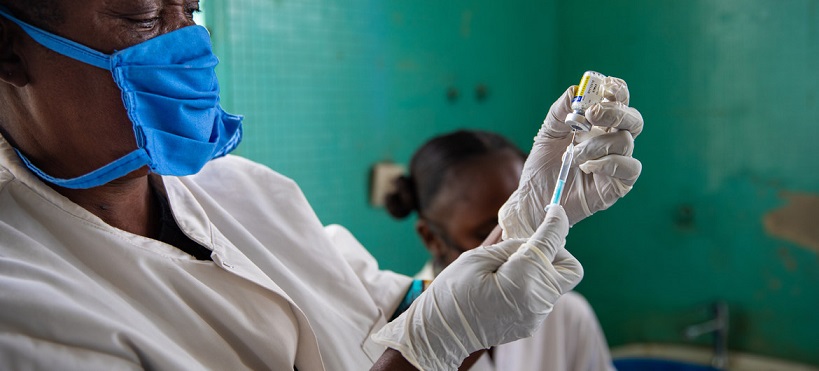The spread of novel coronavirus began before the harvest season for most fruits,growers could not conduct. Also it causes has had unprecedented impacts on all food markets, including the market for fruits. However, some of fruits farmers and sells from Gitesi and Gishyita Sectors, Western Province, Rwanda, Haven’t prepared yet for enough and quality stores. Interruption faced shocks in both supply and demand. Also restrictions on crossâ€border movement between Countries established. However, the
district officials confirmed advocacy with development partners proceed well and the recovery fund launched.
“sells fruits and I am fruits trader, with the capital of $400 before Covid19. but now only $150 remained only, even my clients reduced. Before this pandemic, I used to give enough fruits to my clients and sometimes to my fellow’s fruits sells and based on agreement, they used to pay after selling. then when covid19 came in the seller weren't able to pay me back because they threw almost because most of them had rotten. Currently I gave a plot back to the owners because, I am not able to pay daily Tax. Presently, what I can do is to join my fellows at the markets day only.” Nyirandirabika Juntie, Gitesi Sector, Gitega Cell, Muvumbi Village, said.
“Before covid19, I used to have access to my plot at the market, with a lot of fruits and even took some of packages to my clients in Gisenyi district, Northern Province. Covid19 came, when I had bought alot of fruits packages in my store. Unfortunately, that
Time I haven’t any means to transport them to Gisenyi, also it wasn’t allowed to proceed business out of local markets. And when I brought them in karongi's market, there was no place for me to work because of 1meter distance rule yet I am required to pay tax like others. So far, now almost of my capital made a big loss.” Claudine Uwimana, Gishyita Sector, Buhoro Cell, Mboneko Village, said.
“It’s True, many Business activities decreased. this global pandemic affected its Regular yield. It had an adverse effect as well as for women in businesses, everything had come to a standstill, when no activity was taking place, even among the trader’s things had stopped, whether the market vendors, experienced the effects of COVID 19. Everyone is being asked to take steps to prevent spreading the virus from person to person. Physically distancing is one way to accomplish this. They have been reminded for wearing face masks and wash hands.” MUKASE Valentine, Vice Mayor/ASOC, Karongi District, said.
"UN was involved in regional integration and it’s very important when we talk about this pandemic and building much better. Therefore, we support competitiveness strategies for government to take advantage of African continental free trade Area, cross border and ecommerce. Also we are in process the process with EU to support Financial, while supporting the government for accessing the right decisions, and sustain economic recovery plans.” Mr. Fodé Ndiaye, UN Resident Coordinator,said
However, to Ministry of Trade and Industry; Established The payment of taxes that has been deferred by RRA to ease the pressures caused by the COVID-19 pandemic on businesses as they experienced months of non-activity and reduced activity. Additionally, the recovery fund will enable businesses to borrow working capital at lower interest rates and with favorable repayment terms to facilitate their cash flow and resumption of business activities.
General COVID-19 impact on trade and industry in Rwanda:
It has made disrupted the supply chain of Rwanda’s trade, both exports and imports. However, between January 2020-May 2020, exports increased 11.3% driven by a 913% increase in the export of gold. This is due to more processed gold being exported than in raw form. However, the volume of total exports decreased by 25.5% during the same period due to limited transport of goods as well as lock down restrictions imposed by export markets at their ports, limiting quantity of traded goods across borders. Imports increased by 7%, while volume of imports decreased by 7.4%. In total, the trade deficit has increased by 4.8% between the January-May 2020 period.





